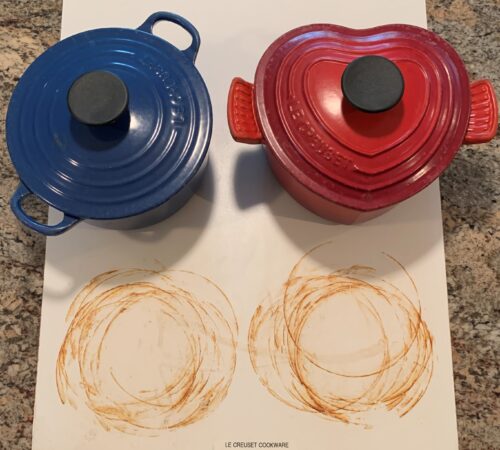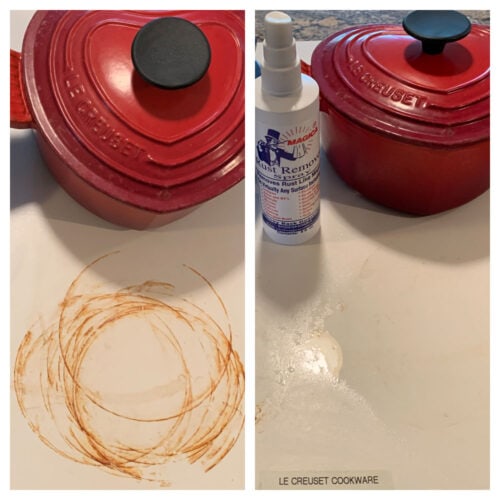Risks of Using Rusted Cookware
Leave a Comment Has your cast iron seen better days? Is your muffin tin looking more orange than silver? Rust can form on many of our metal pans, utensils, tins and cookware, especially if you let them soak in the sink just a little too long. Can you use rusted cookware without getting sick, or are you risking your health until you re-season that cast iron skillet?
Has your cast iron seen better days? Is your muffin tin looking more orange than silver? Rust can form on many of our metal pans, utensils, tins and cookware, especially if you let them soak in the sink just a little too long. Can you use rusted cookware without getting sick, or are you risking your health until you re-season that cast iron skillet?
The short answer is that rusty cookware probably won’t harm you, but it’s certainly not ideal. Read on to learn more about the risks of using rusted cookware and how to easily remove rust.
What happens if I ingest rust?
According to the U.S. Environmental Protection Agency (EPA), ingesting rust in small amounts will not harm your health (unless you have a rare disease called hemochromatosis, which causes your internal organs to retain iron). The Centers for Disease Control and Prevention (CDC) cautions against inhaling large amounts of rust (usually a workplace hazard rather than a kitchen one), which can cause respiratory issues. In fact, iron oxide is used as a safe, U.S. Food and Drug Administration (FDA)-approved food coloring. In other words, you probably won’t be harmed if you eat food baked in rusty pans or cooked with rusty water… but if you have a choice, why would you want to?
How can I get rust off of my cookware?

If you can’t get the rust off your cookware with one of the methods below, it’s a good idea to retire that piece and spring for something new. There’s no sense in taking risks with your health—or ruining the flavor of your food:
- Steel wool: Use a steel wool pad to scrub rust off of the metal. This will require a little elbow grease, but tends to be quite effective. After you’re done, wash the cookware thoroughly and season it with heat and oil to form a protective coating.
- Salt: Kosher salt is a gentle abrasive that can help remove rust stains. Grab an old towel or a brown paper bag to scrub the metal, then wash and season as above.
- Lemon juice and salt: Lemon juice combines acid, which will eat away at rust, with the abrasive qualities of salt. Make a paste by combining the two ingredients and apply to your cookware. If the stains are particularly stubborn, let it sit for a few minutes, then scrub. Wash and season before putting away.
- Potato and baking soda: This method is best for thin, surface rust stains. Cut a raw potato in half. Sprinkle baking soda on the rusty cookware, then use the potato, cut side down, to gently scrub the rust stains away.
- Magica® Rust Removers: If you want to bypass the elbow grease, proceed directly to Magica® Rust Removers. Our “magic” formula removes rust stains quickly and easily, so all you have to do is wipe it away, wash your cookware and season it.
Engaging in necessary cookware rust removal is a great way to keep yourself and your family healthy. To purchase your own Magica® Rust Removers, visit our online store today.

